|
UNICEF Archival
Books
UNICEF's History
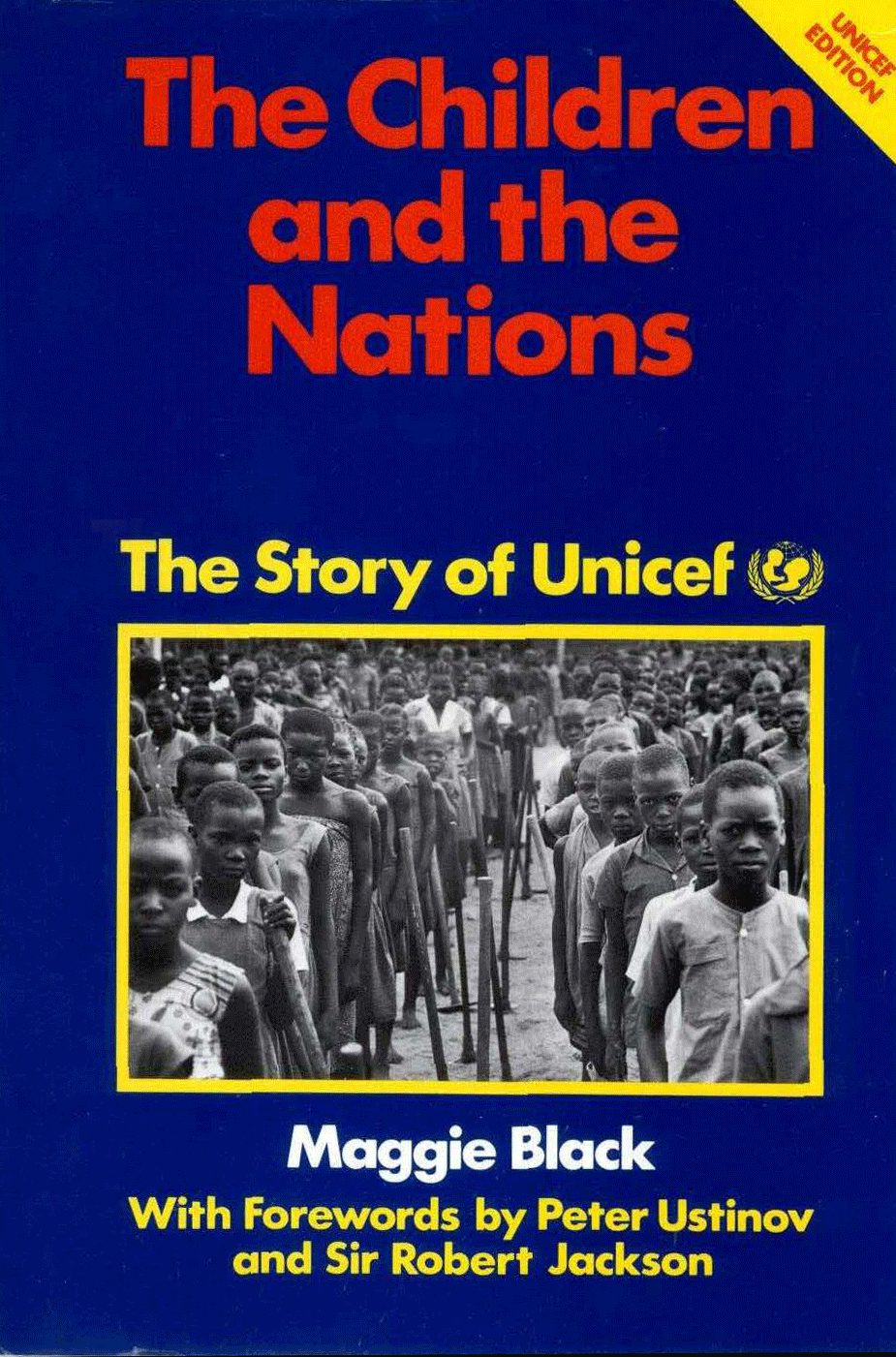 |
The
Children and the Nations
The Story of UNICEF
by Maggie Black
(UNICEF, 1986)
This is the first history of what the international
humanitarian community has attempted to do in the postwar
era for children of the developing world. |
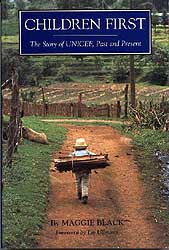 |
Children
First
The story of
UNICEF Past and Present
by Maggie Black
(UNICEF, 1996)
Celebrating UNICEF's fiftieth anniversary in 1996,'Children
First: The Story of UNICEF Past and Present' examines
changes in public attitudes and government policies which
have put children at the top of the international agenda in
the 1990s. |
The Progress of Nations
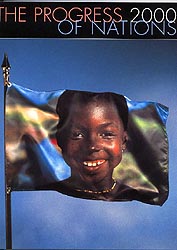 |
The
Progress of Nations
(2000)
The report ranks nations according to their achievements in
developmental goals for children. In this 2000 edition, the
last of this annual series, HIV/AIDS is one of the central
topics. The publication captures the slow but steady
progress girls and women are making as they overcome
inequality and discrimination. |
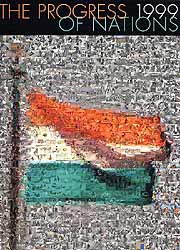 |
The
Progress of Nations
(1999)
The 1999 edition looks at the devastating impact of both
HIV/AIDS and the 'debt burden' on the development, health
and education of children and families in some of the
poorest countries. The Progress of Nations 1999 also charts
the steps taken and the progress made in child immunization
and in the eradication of vitamin A deficiency.
|
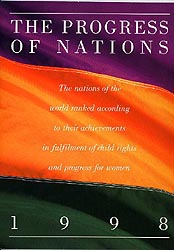 |
The
Progress of Nations
(1998)
The 1998 edition looks at children's rights, emphazing the
right to be registered at birth and hence to qualify for
education, health and other social services. It also charts
child immunization progress, focuses on the vulnerabilities
of adolescence in developing countries and outlines the
issue of homelessness in the richest nations. |
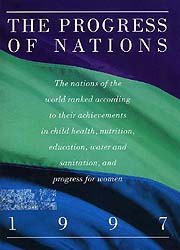 |
The
Progress of Nations
(1997)
The 1997 edition analyses in detail women's lives and their
health and their future. It monitors not only specific
advances and regression in some of the key areas of human
well-being, but also the overall investment that countries
are making in the futures of their own people. |
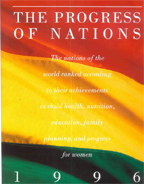 |
The Progress of
Nations
(1996)
Publisher: P&LA for UNICEF
You can purchase this publication at your bookstore or
any online bookseller.
|
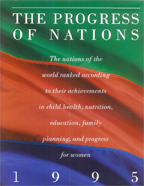 |
The Progress of
Nations
(1995)
Publisher: P&LA for UNICEF
You can purchase this publication at your bookstore or
any online bookseller. |
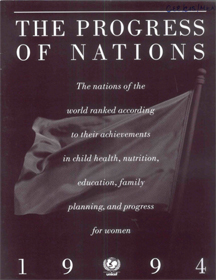 |
The Progress of Nations
(1994)
Publisher: P&LA for UNICEF
You can purchase this publication at your bookstore or
any online bookseller.
|
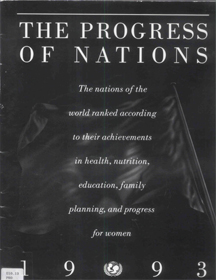 |
The Progress of Nations
(1993)
Publisher: P&LA for UNICEF
You can purchase this publication at your bookstore or
any online bookseller. |
UNICEF Archival Publications
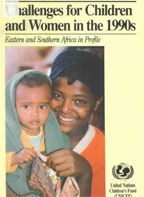 |
Challenges for Children and Women in the 1990s
(UNICEF
ESARO, 1991)
In October 1990, UNICEF's Eastern and Southern Africa
Regional Office brought
together a number of specialists to analyse
child survival, protection and development data with a view
to identifying new trends and
issues emerging in the region. |
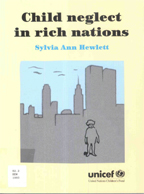 |
Child Neglect in Rich Nations
(Sylvia Ann Hewlett,
UNICEF, 1993)
Child neglect in rich nations describes how and why some
of the wealthiest nations on earth have short-changed
children. Poverty and
abandonment are now commonplace experiences for children in
the rich. Much of this book focuses on what to do: the
techniques and
strategies exist. |
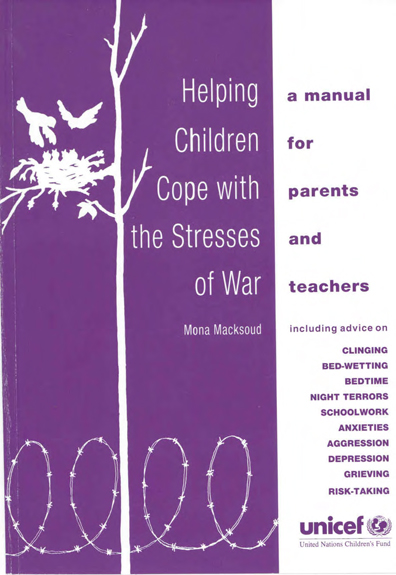 |
Helping Children Cope with the Stresses of War
A Manual for Parents and Teachers
by Mona Macksoud
(UNICEF, 1993)
Based on methods and approaches that have been tested
extensively in war-torn Lebanon, this manual will be
welcomed by parents and teachers helping children cope with
the stresses of war and other forms of systematic violence.
|
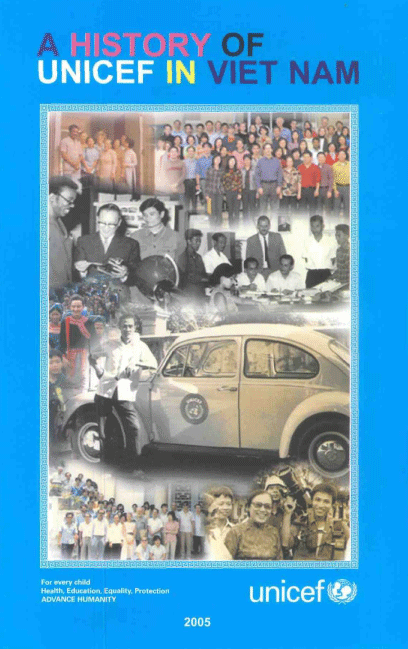 |
A History of
UNICEF in Vietnam
(1948-2005)
UNICEF Country Office
This book tells the history
of UNICEF in Viet Nam through the testimonies of several
generations of UNICEF professionals. The political
neutrality of UNICEF and its aim to put children at the
heart of social development built up trust, credibility and
a very special relationship with the people of Vietnam. |
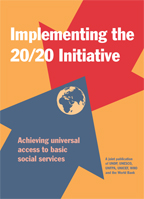 |
Implementing the 20/20 Initiative
(1997)
A joint publication of UNDP, UNESCO, UNFPA, UNICEF, WHO and
the World Bank
The 20/20 Initiative is a
compact between developing and industrialized countries,
calling for the allocation of, on average, 20 per cent of
the budget in developing countries and 20 per cent of
official development assistance (ODA) to basic social
services. |
|
|














